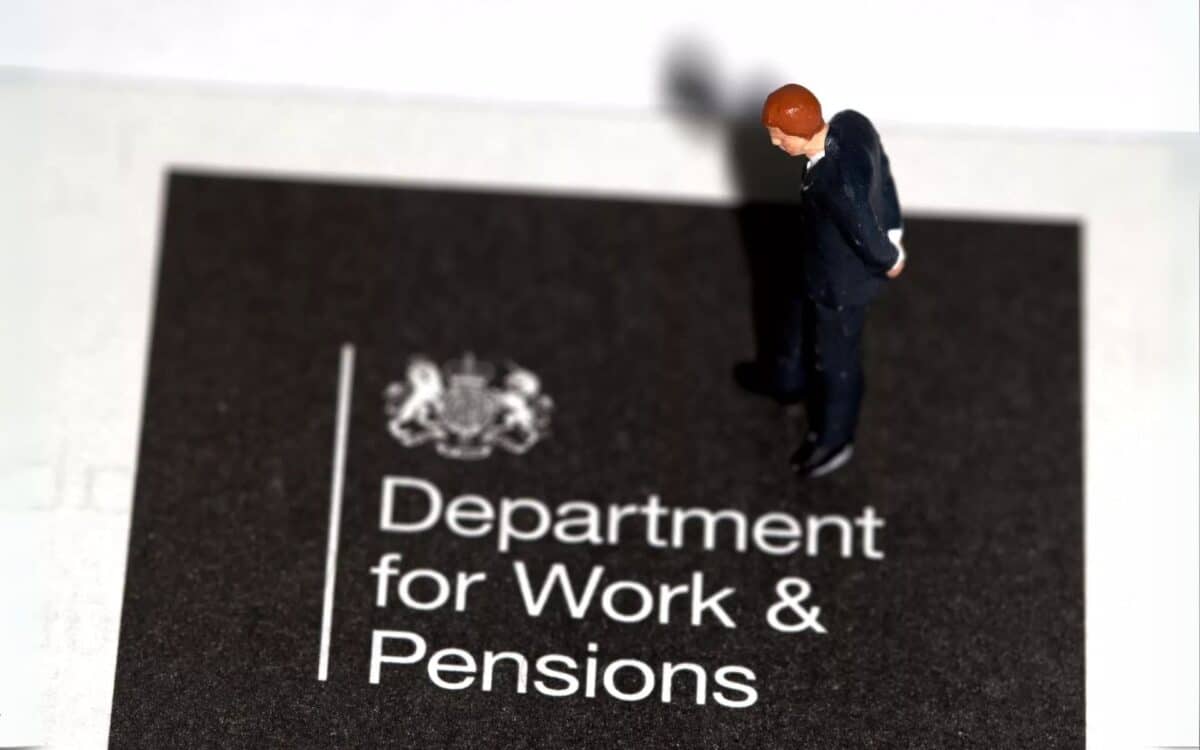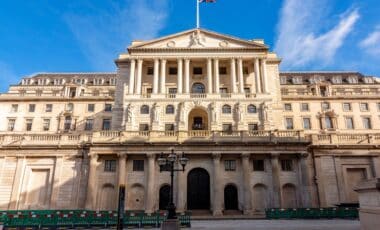The Department for Work and Pensions (DWP) is set to introduce new bank account checks as part of an extensive effort to combat benefit fraud and financial misconduct. The initiative, which falls under the Fraud, Error and Recovery Bill, will focus on four key groups suspected of exploiting the welfare system.
This crackdown on fraudulent claims comes in response to the £9.7 billion in benefit overpayments recorded in 2023/24, a figure that represents 3.7% of total benefit expenditure. Fraudulent overpayments have remained higher than pre-pandemic levels, with Universal Credit being one of the most affected benefits. The DWP estimates that £6.5 billion—or 12.4% of total Universal Credit spending—was lost due to fraud or error in the last financial year alone. As the government faces increasing pressure to tighten regulations, these bank account checks mark a significant step in the fight against benefit fraud.
Who Will Be Targeted by the New DWP Bank Checks?
The DWP has confirmed that the first phase of these bank account checks will focus on four primary groups:
- Big businesses suspected of misusing government financial support.
- Individuals who committed COVID-19-related fraud, particularly those who exploited emergency funding schemes.
- Organised criminal gangs involved in large-scale benefit fraud operations.
- Individuals knowingly cheating the system by claiming benefits they are not entitled to.
Andrew Western, Labour Party Minister for Transformation, has made it clear that these measures are intended to tackle widespread abuse within the welfare system. “It is not acceptable, we have a major problem and we are taking the powers needed to act,” he stated, emphasising the government’s commitment to eliminating fraud and protecting taxpayer money.
How Will the DWP Enforce These Bank Account Checks?
The Fraud, Error and Recovery Bill grants the DWP new powers to monitor financial activity, cross-checking bank account data with benefit records. This will allow investigators to identify inconsistencies, such as:
- Undeclared income from employment or self-employment.
- Significant savings that exceed eligibility thresholds for certain benefits.
- Large, unexplained transactions that suggest hidden financial resources.
- Multiple benefit claims linked to the same account or individual.
The introduction of automated data-sharing mechanisms will streamline fraud detection, enabling authorities to act more quickly and efficiently. While these measures are expected to reduce fraud, concerns have been raised about how they will be implemented and whether they could lead to false accusations against legitimate claimants.
Harsher Penalties for Benefit Fraud
In addition to bank account checks, the government is implementing tougher penalties for those found guilty of fraud. Work and Pensions Secretary Liz Kendall has highlighted the need for stronger consequences for those who exploit the system.
“We are turning off the tap to criminals who cheat the system and steal law-abiding taxpayers’ money. This means greater consequences for fraudsters who cheat and evade the system, including as a last resort in the most serious cases removing their driving licence.”
These penalties will be scaled according to the severity of the fraud, with possible actions including:
- Immediate benefit suspensions for claimants under investigation.
- Heavy fines for those caught deliberately misreporting their financial situation.
- Asset seizures in cases involving large-scale fraud.
- Prosecution and imprisonment for offenders engaged in organised fraud rings.
For the most serious offenders, losing a driving licence could be part of the government’s strategy to deter benefit fraud by introducing real-world consequences beyond financial penalties.
Will Safeguards Be in Place?
While the DWP is determined to clamp down on fraudulent claims, there are concerns about how the new powers will be used and whether they could wrongly impact innocent claimants. To address these concerns, the government has promised strict oversight and safeguards.
Liz Kendall reassured the public, stating:
“Backed up by new and important safeguards including reporting mechanisms and independent oversight to ensure the powers are used proportionately and safely. People need to have confidence the Government is opening all available doors to tackle fraud and eliminate waste, as we continue the most ambitious programme for government in a generation – with a laser-like focus on outcomes which will make the biggest difference to their lives as part of our Plan for Change.”
These safeguards will include:
- Independent reviews of fraud investigations to prevent wrongful accusations.
- A transparent appeals process for claimants flagged for investigation.
- Data protection measures to ensure financial records are handled responsibly.
While the DWP insists these checks will only target those deliberately abusing the system, some experts warn that low-income claimants could still be unfairly caught in the net. Campaigners argue that certain errors in benefit claims stem from confusion over complex rules rather than deliberate fraud, and that more support should be offered to claimants before punitive measures are taken.
What Does This Mean for Benefit Claimants?
For most benefit recipients who follow the rules, the new bank account checks will have no impact. However, claimants should ensure their financial information is accurate and up to date to avoid potential issues. Steps to take include:
- Regularly reviewing benefit entitlements to confirm they align with income and savings.
- Declaring any changes in financial circumstances promptly to the DWP.
- Keeping clear records of all transactions and benefit-related correspondence.
While tackling fraud remains a priority, the government will need to strike a balance between protecting taxpayer money and ensuring that vulnerable individuals are not unfairly penalised.
What’s Next for Benefit Fraud Detection?
The DWP’s rollout of bank account checks marks a major escalation in the fight against benefit fraud, with a particular focus on organised crime, fraudulent businesses, and individuals knowingly exploiting the system. While the government argues that these measures are essential to prevent financial losses, there is growing debate over how the checks will be enforced and whether they could affect innocent claimants.
As these changes come into effect, claimants are encouraged to stay informed and ensure compliance with benefit rules to avoid any unexpected investigations. With strict penalties now in place, those found guilty of fraud face serious consequences, including the loss of benefits, financial penalties, and even legal action. However, the effectiveness of these measures in reducing fraud without negatively impacting legitimate claimants remains to be seen.










why there do that have there done it all allready there took my water t0 pay them i did not pay as i had to much water and had i leak what going to help with that if you pay them there will think nothing wrong